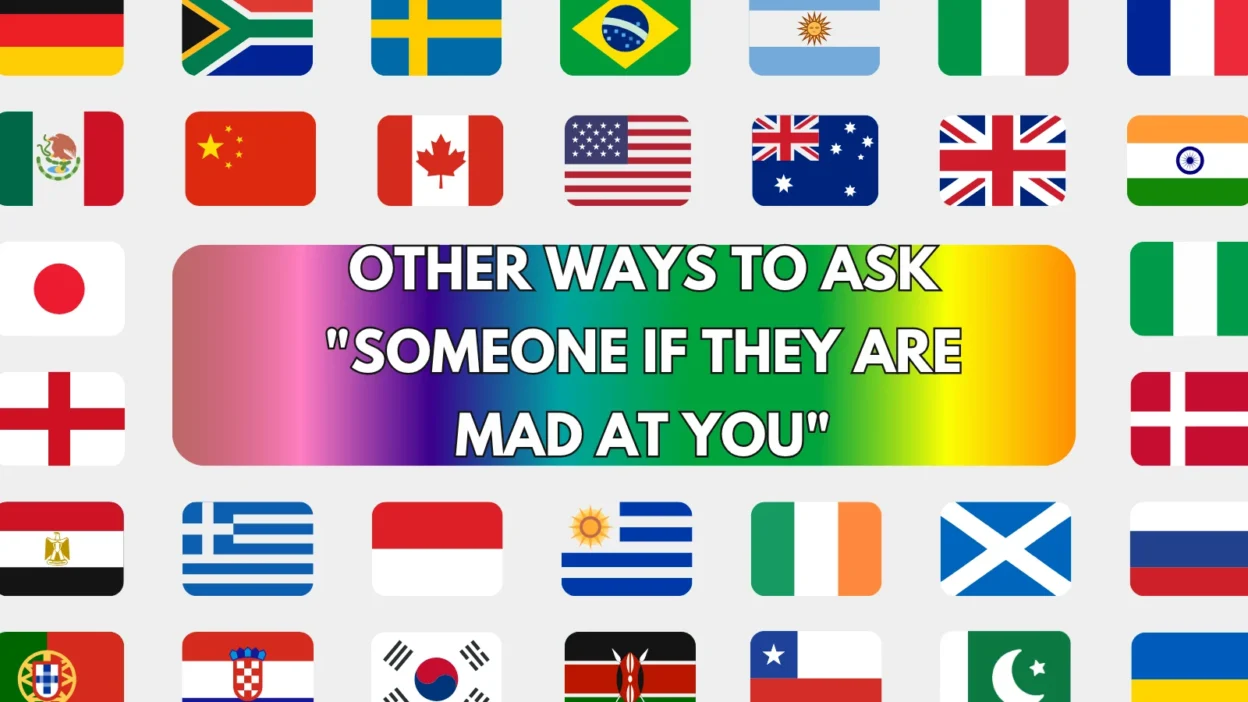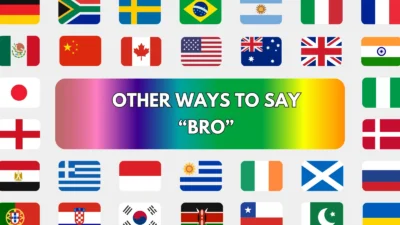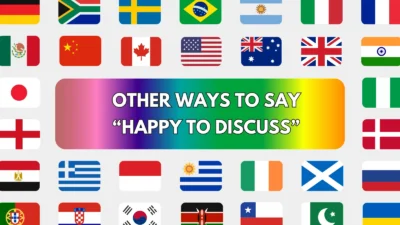Asking someone if they’re mad at you can be awkward. You don’t want to sound defensive or anxious, but you still want to clear the air and maintain trust. Whether it’s a friend, partner, or coworker, the right phrasing can make your question feel caring instead of confrontational.
Below are 25 natural and emotionally intelligent ways to ask if someone is upset with you — each with a meaning, explanation, example, and tone guide to help you navigate delicate conversations gracefully.
1. Did I do something to upset you?
Meaning: Directly asks if your actions caused hurt feelings.
Detailed Explanation: It’s honest and accountable, showing maturity.
Scenario Example: Did I do something to upset you? You’ve been quiet lately.
Best Use: Close relationships or honest conversations.
Tone: Caring, sincere.
2. Are we okay?
Meaning: Gently checks if everything’s fine between you two.
Detailed Explanation: A simple, emotional temperature check.
Scenario Example: You seem distant lately. Are we okay?
Best Use: When you want to sound concerned without pressure.
Tone: Soft, reassuring.
3. You seem a little off — is everything alright?
Meaning: Shows empathy and curiosity rather than accusation.
Detailed Explanation: Opens space for them to share feelings.
Scenario Example: You seem a little off today — is everything alright?
Best Use: Subtle and kind emotional check-ins.
Tone: Gentle, observant.
4. Have I done something wrong?
Meaning: Asks for clarity about your possible mistake.
Detailed Explanation: Takes responsibility and invites honesty.
Scenario Example: Have I done something wrong? You’ve been avoiding eye contact.
Best Use: When someone’s behavior noticeably changes.
Tone: Humble, respectful.
5. Are you upset with me?
Meaning: A straightforward way to ask about their feelings.
Detailed Explanation: Simple, honest, and clear.
Scenario Example: You seem distant. Are you upset with me?
Best Use: Direct conversations.
Tone: Genuine, straightforward.
6. You’ve been quiet lately — did I say something wrong?
Meaning: Gently asks if silence stems from conflict.
Detailed Explanation: Links your concern to observable behavior.
Scenario Example: You’ve been quiet since yesterday — did I say something wrong?
Best Use: Friendships and relationships.
Tone: Warm, cautious.
7. Is something bothering you about me?
Meaning: Gives them space to express grievances safely.
Detailed Explanation: Encourages open, honest communication.
Scenario Example: Is something bothering you about me? I’d like to talk about it.
Best Use: Relationship check-ins.
Tone: Empathetic, calm.
8. I feel like something’s off between us — am I imagining it?
Meaning: Admits your feelings while inviting clarity.
Detailed Explanation: Makes the question less confrontational.
Scenario Example: I feel like something’s off between us — am I imagining it?
Best Use: Emotional, reflective conversations.
Tone: Vulnerable, sincere.
9. Have I upset you somehow?
Meaning: Shows responsibility and openness.
Detailed Explanation: Softens the question by adding “somehow.”
Scenario Example: Have I upset you somehow? You seem distant today.
Best Use: When you suspect tension.
Tone: Polite, caring.
10. Is everything good between us?
Meaning: Checks the health of your relationship in a relaxed way.
Detailed Explanation: Sounds friendly and low-pressure.
Scenario Example: We haven’t talked much lately. Is everything good between us?
Best Use: Friendships or casual relationships.
Tone: Friendly, light.
11. I feel like you’re upset — am I wrong?
Meaning: Acknowledges emotional cues while respecting their space.
Detailed Explanation: Invites clarification without assuming.
Scenario Example: I feel like you’re upset — am I wrong?
Best Use: Empathetic, non-confrontational moments.
Tone: Curious, caring.
12. Did I say something that hurt you?
Meaning: Seeks accountability for possible verbal harm.
Detailed Explanation: Focuses on your words, not just behavior.
Scenario Example: I’ve been thinking — did I say something that hurt you yesterday?
Best Use: When addressing potential misunderstandings.
Tone: Reflective, kind.
13. Are we on good terms?
Meaning: Checks if your relationship is still positive.
Detailed Explanation: Simple and balanced — neither too casual nor too serious.
Scenario Example: Just checking in — are we on good terms?
Best Use: Workplace or semi-formal settings.
Tone: Calm, diplomatic.
14. You seem upset — want to talk about it?
Meaning: Invites conversation rather than demanding explanation.
Detailed Explanation: Balances care with respect for boundaries.
Scenario Example: You seem upset — want to talk about it?
Best Use: Close relationships or compassionate check-ins.
Tone: Supportive, kind.
15. Have I done something to offend you?
Meaning: Asks directly about perceived offense.
Detailed Explanation: Works best when cultural or tone misunderstandings are possible.
Scenario Example: If I’ve done something to offend you, please tell me.
Best Use: Formal or professional relationships.
Tone: Respectful, mature.
16. Are you mad at me?
Meaning: The simplest, most direct way to ask.
Detailed Explanation: Best used when your relationship allows open honesty.
Scenario Example: Be honest — are you mad at me?
Best Use: Informal, emotionally close relationships.
Tone: Honest, direct.
17. Is there something I should know?
Meaning: Gently probes for unspoken tension or issues.
Detailed Explanation: Allows them to share freely without pressure.
Scenario Example: You’ve been quiet all day. Is there something I should know?
Best Use: Sensitive or private situations.
Tone: Neutral, attentive.
18. If I did something wrong, please tell me.
Meaning: Invites open feedback and resolution.
Detailed Explanation: Combines accountability with genuine care.
Scenario Example: If I did something wrong, please tell me. I don’t want bad energy between us.
Best Use: Repairing misunderstandings.
Tone: Respectful, vulnerable.
19. I hope I didn’t upset you.
Meaning: Expresses concern without assuming blame.
Detailed Explanation: Great for gentle check-ins.
Scenario Example: I hope I didn’t upset you with my comment earlier.
Best Use: When tension is uncertain.
Tone: Soft, kind.
20. You seem distant — is everything okay between us?
Meaning: Observes and inquires with compassion.
Detailed Explanation: Recognizes emotional distance and seeks clarity.
Scenario Example: You seem distant lately — is everything okay between us?
Best Use: Emotional conversations.
Tone: Warm, caring.
21. Do you want to talk about what’s going on?
Meaning: Encourages open dialogue.
Detailed Explanation: Helpful when the other person seems closed off.
Scenario Example: You seem tense — do you want to talk about what’s going on?
Best Use: Supportive discussions.
Tone: Gentle, inviting.
22. Are we still good?
Meaning: Checks if the relationship status is fine in a relaxed way.
Detailed Explanation: Friendly, non-serious phrasing that fits casual settings.
Scenario Example: Haven’t heard from you — are we still good?
Best Use: Friends, colleagues, or informal chats.
Tone: Light, reassuring.
23. Have I made you uncomfortable?
Meaning: Checks for unintentional offense or awkwardness.
Detailed Explanation: Shows emotional intelligence and accountability.
Scenario Example: I didn’t mean to overstep — have I made you uncomfortable?
Best Use: Sensitive social situations.
Tone: Polite, thoughtful.
24. Did I cross a line somewhere?
Meaning: Acknowledges possible boundaries that were overlooked.
Detailed Explanation: Indicates awareness and willingness to correct behavior.
Scenario Example: If I crossed a line somewhere, please let me know.
Best Use: Emotional or interpersonal issues.
Tone: Honest, self-aware.
25. I value our relationship — did I do something to hurt it?
Meaning: Combines care, accountability, and emotional intelligence.
Detailed Explanation: Shows genuine desire to maintain the relationship.
Scenario Example: I value our friendship a lot — did I do something to hurt it?
Best Use: Deep personal or long-term relationships.
Tone: Heartfelt, sincere.
Conclusion
Asking if someone is mad at you doesn’t have to be stressful. The right words can turn a tense moment into an opportunity for connection. By using thoughtful phrases like “Are we okay?”, “Have I done something wrong?”, or “You seem upset — want to talk about it?”, you show empathy and maturity.
Remember, the goal isn’t just to clear guilt — it’s to understand and rebuild trust. Kindness and openness are your best tools for keeping any relationship strong.

Robat Hood is a creative writer and contributor at Saypadia, focused on explaining trending words, slang, and cultural phrases in a simple and engaging way. With a sharp eye for modern language trends, Robat aims to make Saypadia a trusted place for understanding how words are used online and in daily conversations. His content is informative, approachable, and designed for readers of all levels.




